Probate Lawyer in Miami, Florida
Trusted and Experienced Probate Attorney
Free consultation 24/7
Got a Problem? Consult With Us
For Assistance, Please Give us a call or schedule a virtual appointment.
Recognition






Navigating Estate Planning and Legal Challenges:
Morgan Legal Group stands ready to assist. Contemplating will creation, guardianship appointment, or estate litigation?
Ensure professional guidance; navigate legal complexities with confidence. At Morgan Legal Group, our experienced attorneys prioritize resolving your legal matters.
Comprehensive Estate Planning Services:
Experienced and Knowledgeable Attorneys:
Client Satisfaction and Results:
Instilling Confidence in the Legal Arena.

Exemplary Estate Planning Excellence: Morgan Legal Group Unparalleled Attributes
Our industry prominence can be attributed to key pillars:
Experience and Expertise:
Specialized estate planning experience enables us to navigate legal complexities deftly.
Tailored Solutions:
Acknowledging each client’s unique estate planning requisites, we adopt a bespoke approach. Collaborating closely, we tailor strategies aligning with clients’ aspirations. This personalized methodology underlines our commitment to crafting distinct solutions.
Dedication to Client Satisfaction:
Client satisfaction stands as our cornerstone. We offer top-tier service and unwavering support across their estate planning journey. Clear communication and transparency fortify enduring client relationships.
Comprehensive Service Spectrum:
Offering a gamut of estate planning services, we cater to diverse needs. We offer holistic solutions for wills, trusts, probate, asset protection, guardianship, and elder law.
Proven Track Record:
Consistent delivery of positive results to satisfy clients with proficiency and unwavering commitment.
In summary, our distinctive blend of experience, personalized approach, client devotion, and comprehensive services makes us the premier estate planning firm in Miami.
How we work:
Our Client-Centric Work Ethic is Paramount
Our Client-Centric Work Ethic is Paramount
Our ethos at Morgan Legal Group revolves around a meticulous and client-centered work approach. This commitment guarantees that each client benefits from personalized attention, comprehensive solutions, and a seamless journey through the estate planning process. The core facets of our work philosophy encompass:
1. Individualized Guidance:
Acknowledging the uniqueness of each client’s circumstances and aspirations, our team invests significant time in grasping their specific needs. This enables us to offer tailored guidance, factoring in family dynamics, financial situations, and personal preferences. Our services are finely tuned to provide bespoke solutions aligned with their requirements.
2. Collaborative Process:
We firmly believe in the potency of collaboration. The firm engages closely with clients, nurturing an environment of transparent communication. Valuing our client’s insights, we actively involve them in decision-making. This collaboration empowers clients to stay informed, take ownership, and play an integral role in sculpting their estate plans.
3. Thorough Analysis and Planning:
Our team conducts comprehensive assessments of clients’ assets, liabilities, and legal obligations. We meticulously gauge potential risks, while identifying avenues for asset protection, tax optimization, and wealth preservation. This meticulous approach ensures the creation of robust, tailor-made estate plans that align with clients’ goals, while adhering to legal stipulations and anticipating contingencies.
4. Clear and Transparent Communication:
Comprehending the pivotal role of clear and transparent communication to foster trust and securing client contentment. Complex legal concepts are articulated in a lucid and accessible manner, enabling clients to make informed decisions. Our proactive approach to updates, queries, and concerns underscores our commitment to crystal-clear communication.
5. Attention to Detail and Accuracy:
Estate planning hinges on precision and attention to detail. Our team is unwavering in its pursuit of precision across all legal documents and the meticulous execution of estate plans. Rigorous reviews and double-checks are standard practice to mitigate errors or oversights. Our precision bolsters client confidence in the effectiveness and validity of their estate plans.
6. Ongoing Support and Review:
We can offer continuous support for regular reviews of estate plans.
The bedrock of our work philosophy encompasses individualized guidance, collaboration, thorough analysis, transparent communication, meticulous attention to detail, and unwavering support. Anchored in these principles, our mission is to deliver superlative service, bespoke solutions, and the utmost client satisfaction in every estate planning endeavor.
1. Communication with the client.
Every day, our experts are ready to advise you for free!
2. Problem analysis
After providing legal advice and analysis of your documents.
3. Performance of work
The work process of our company’s specialists is based on complete transparency and constant informing of the client.
4. Positive result
After the court has satisfied your claims
5. Your rating, our work
Then we deliver the specified documents to you at a convenient time for you
Get in Touch
FAQ
What Does Probate Mean in Miami?
If you find yourself dealing with the passing of a loved one in Miami, you may have heard the term “probate” mentioned in discussions surrounding their estate and assets. At Morgan Legal Group, we understand that the probate process can be complex and overwhelming, especially during a time of grief. In this blog post, we’ll delve into what probate means in Miami, its significance, and how our experienced legal team can assist you through this challenging process.The Basics of Probate
Probate is the legal process through which a person’s estate is settled and distributed after their passing. It involves proving the validity of the deceased person’s will, identifying and inventorying their assets, paying off debts and taxes, and ultimately distributing the remaining assets to beneficiaries. The probate process is governed by state laws, and the specifics can vary from one jurisdiction to another, including Miami.Why Is Probate Important?
Probate serves several essential purposes, including:Asset Distribution
Probate ensures that the deceased person’s assets are distributed according to their wishes as stated in their will. If there’s no valid will, state laws dictate how the assets are distributed among heirs.Debt Settlement
The probate process allows creditors to present claims against the estate. These claims are reviewed, and valid debts are settled before the remaining assets are distributed to beneficiaries.Legal Validation
Probate provides legal validation of the will’s authenticity. This helps prevent fraud and disputes over the estate’s distribution.The Probate Process in Miami
In Miami, the probate process typically involves the following steps:Filing the Will
If there’s a valid will, it must be filed with the appropriate court in Miami. If there’s no will, the court will follow intestacy laws to distribute the assets.Appointing an Executor
The court will appoint an executor or personal representative to oversee the probate process. This individual is responsible for gathering assets, paying debts, and distributing the remaining assets.Inventory and Appraisal
All of the deceased person’s assets must be identified, inventoried, and appraised to determine their value.Debt Payment
Outstanding debts and taxes are paid off from the estate’s assets before distribution to beneficiaries.Asset Distribution
Once debts are settled, the remaining assets are distributed to beneficiaries according to the terms of the will or state law.How Morgan Legal Group Can Help
Navigating the probate process in Miami can be overwhelming, especially during an already difficult time. At Morgan Legal Group, our experienced probate attorneys can provide the guidance and support you need. We can assist you with:Probate Administration
Our team can help you navigate each step of the probate process, ensuring that everything is handled properly and efficiently.Estate Planning
To avoid the complexities of probate, we can assist you in creating a comprehensive estate plan that outlines your wishes and minimizes potential issues for your loved ones in the future.Legal Representation
If disputes arise during the probate process, our skilled attorneys can provide legal representation to protect your interests and ensure a fair outcome.Contact Us for Probate Assistance in Miami
If you’re dealing with probate matters in Miami, don’t hesitate to reach out to Morgan Legal Group. Our compassionate and experienced attorneys are here to guide you through the process, ensuring that your loved one’s wishes are respected and their estate is handled with care. Contact us today to schedule a consultation.Rules for Probate in Miami
If you’re facing the prospect of probate in Miami, it’s crucial to understand the rules and regulations that govern this legal process. At Morgan Legal Group, our experienced attorneys are here to help you navigate the complexities of probate and ensure that the process goes as smoothly as possible. In this blog post, we’ll provide you with a comprehensive overview of the rules for probate in Miami and how our legal team can guide you through each step.
Understanding Probate in Miami
Probate is the legal process through which a person’s estate is administered and distributed after their passing. In Miami, as in other jurisdictions, there are specific rules and regulations that must be followed to ensure the orderly settlement of the decedent’s affairs.
Probate Court Jurisdiction
In Miami, probate matters fall under the jurisdiction of the Circuit Court. The court oversees the administration of estates, validation of wills, and resolution of disputes related to the distribution of assets.
Initiating the Probate Process
The probate process in Miami begins with the filing of a petition in the appropriate court. This petition can be filed by an interested party, such as an executor named in the will, a family member, or a creditor.
Validating the Will
If there’s a will, it must be proven valid in court. This involves presenting evidence that the will was properly executed and that the decedent was of sound mind when making it. If the will is deemed valid, the court will appoint the executor named in the will to oversee the probate process.
Identifying and Inventorying Assets
All of the decedent’s assets, including real estate, bank accounts, investments, and personal property, must be identified and inventoried. This inventory will form the basis for the estate’s valuation and distribution.
Notifying Creditors and Settling Debts
In compliance with probate rules, the executor must notify creditors of the probate proceedings. Creditors have a limited time to file claims against the estate for outstanding debts. The executor must ensure that valid debts are paid off before distributing assets to beneficiaries.
Asset Distribution
Once debts are settled, the remaining assets are distributed to beneficiaries according to the terms of the will or state law. Distribution must adhere to the rules and regulations set forth by the court.
Challenges and Disputes
Probate in Miami can become complex if disputes or challenges arise. Beneficiaries, creditors, or family members may contest the will or raise concerns about the distribution. We can provide legal representation to protect your interests in these situations.
How Morgan Legal Group Can Help
At Morgan Legal Group, we are well-versed in the rules and regulations governing probate in Miami. Our experienced attorneys can guide you through each step of the probate process, ensuring that you adhere to the legal requirements and deadlines. We can assist with:
Preparing and Filing Documents
Our legal team can help you prepare and file the necessary documents for initiating and navigating the probate process in Miami.
Estate Valuation
We can assist in valuing the estate’s assets accurately to ensure proper distribution and compliance with probate rules.
Creditor Claims
If creditors file claims against the estate, the firm can review and assess their validity, helping you settle legitimate debts while protecting the estate from unwarranted claims.
Dispute Resolution
If disputes arise, our skilled attorneys can provide legal representation and work towards a fair resolution.
Contact Us for Probate Assistance in Miami
If you’re facing probate in Miami and need guidance on navigating the rules and regulations, Morgan Legal Group is here to help. Contact us today to schedule a consultation.
How to Avoid Probate: Expert Tips
Probate can be a lengthy and complex process that involves court supervision and can lead to delays in asset distribution to your loved ones. Fortunately, there are strategies you can employ to avoid probate and ensure a smoother transition of your assets. At Morgan Legal Group, we’re here to provide you with expert tips on how to avoid probate and protect your estate. In this blog post, we’ll cover various strategies you can use to bypass probate and streamline the distribution of your assets.
1. Establish a Living Trust
One of the most effective ways to avoid probate is to create a living trust. By transferring your assets to a trust, you maintain control over them during your lifetime, and they are automatically transferred to your beneficiaries upon your passing. This process avoids the need for court involvement and can expedite the distribution of your estate.
2. Designate Beneficiaries
For assets such as retirement accounts, life insurance policies, and payable-on-death (POD) bank accounts, you can designate beneficiaries. When you pass away, these assets are directly transferred to the beneficiaries you’ve named, bypassing the probate process.
3. Joint Ownership
Joint ownership with right of survivorship is another way to avoid probate. When you co-own an asset with someone else and include the right of survivorship, the asset automatically transfers to the surviving owner upon your passing. Common examples include joint bank accounts and jointly owned real estate.
4. Make Gifts During Your Lifetime
You can gift your assets to your beneficiaries during your lifetime, reducing the value of your estate subject to probate. However, there are gift tax considerations, so it’s essential to work with an attorney and a tax professional to ensure compliance with tax laws.
5. Establish Payable-on-Death (POD) Accounts
You may be able to set up payable-on-death accounts for bank accounts, certificates of deposit, and other financial accounts. This allows the account to transfer directly to the named beneficiary upon your passing without going through probate.
Contact Us for Expert Estate Planning
Suppose you’re seeking expert advice on avoiding probate and establishing an effective estate plan. In that case, Morgan Legal Group is here to help with its extensive experience in estate planning to guide you through the process of protecting your assets and ensuring a seamless transition for your loved ones. Contact us today to schedule a consultation.
Cost of Probate in Miami: What You Need to Know
Probate is a legal process that involves the distribution of a deceased person’s estate under court supervision. While probate is an essential part of ensuring assets are transferred to beneficiaries, it’s important to understand the associated costs that may arise during this process. In this blog post, Morgan Legal Group will guide you through the factors that can influence the cost of probate in Miami and provide insights to help you plan effectively.
Factors Affecting Probate Costs
The cost of probate in Miami can vary based on several factors:
1. Estate Size and Complexity
Generally, larger estates with complex assets and multiple beneficiaries tend to have higher probate costs. Complex assets may include real estate properties, business interests, and investments that require appraisals and valuations.
2. Legal and Professional Fees
Legal fees for probate proceedings can vary based on the attorney’s hourly rate or a predetermined fee structure. Additional professional services such as appraisals, accountings, and tax consultations may also contribute to the overall cost.
3. Debts and Claims
If the deceased had outstanding debts or claims, these must be settled during probate. Creditors’ claims can impact the timeline and cost of the process, especially if disputes arise.
4. Will Contests and Disputes
If beneficiaries or interested parties contest the validity of the will or engage in disputes over estate distribution, legal proceedings may prolong the probate process and increase associated costs.
Typical Probate Costs
While costs can vary widely, typical expenses associated with probate may include:
1. Court Filing Fees
Every probate case involves court filing fees, which can vary based on the size and value of the estate. These fees cover administrative costs associated with processing the probate case.
2. Attorney Fees
Attorney fees are a significant component of probate costs. Attorneys may charge hourly rates or a percentage of the estate’s value. It’s important to discuss fees and fee structures upfront with your attorney.
3. Executor/Administrator Fees
The executor or administrator of the estate may be entitled to receive a fee for their services. State laws typically dictate these fees, which are generally a percentage of the estate’s value.
4. Appraisal and Valuation Fees
For estates with complex assets, appraisals and valuations are necessary to determine the value of the assets. These services come with associated fees.
5. Accounting and Tax Preparation Fees
Preparing the estate’s accounting and filing tax returns can require professional assistance. These services can contribute to the overall cost of probate.
Working with an Experienced Attorney
To navigate the probate process efficiently and manage costs effectively, it’s advisable to work with an experienced probate attorney. A knowledgeable attorney can provide guidance on cost-saving strategies and ensure compliance with legal requirements.
Contact Us for Expert Probate Guidance
If you’re in Miami and need expert advice on probate costs and estate planning, the attorneys at Morgan Legal Group are here to assist you. We understand the complexities of probate proceedings and can help you make informed decisions to minimize costs and streamline the process. Contact us today for a consultation.
How Long Does Property Stay in Probate in Miami?
Probate is a legal process that involves the distribution of a deceased person’s assets and property. One common question that often arises during the probate process is: How long does property stay in probate in Miami? In this blog post, our experienced attorneys at Morgan Legal Group will provide you with insights into the duration of property probate in Miami and the factors that can impact the timeline.
Understanding the Probate Process
Before delving into the timeline, let’s briefly review the probate process. Probate involves validating the deceased’s will (if one exists), identifying and valuing assets, paying debts and taxes, and distributing the remaining assets to beneficiaries. The timeline can vary based on several factors.
Factors Influencing Probate Duration
The duration of property probate in Miami can be affected by various factors:
1. Estate Complexity
The complexity of the estate plays a significant role. If the deceased owned multiple properties, business interests, or investments, it can extend the probate timeline. Valuing and distributing these assets take time.
2. Will Contests and Disputes
If beneficiaries or interested parties contest the validity of the will or engage in disputes over asset distribution, it can lead to delays in the probate process. Legal proceedings associated with will contests can extend the timeline.
3. Creditor Claims
Settling outstanding debts and creditor claims is an essential part of the probate process. If there are disputes or negotiations involved with creditors, it can impact the timeline.
4. Court Schedule
The availability of the court and the court’s schedule can affect the pace of probate proceedings. Court dates for hearings and approvals can contribute to the overall timeline.
Estimated Probate Timeline
While the exact duration can vary, property probate in Miami typically takes between several months to a year or more. The probate process can be summarized in the following steps:
1. Filing the Petition
The probate process begins with filing the petition in the appropriate court. This initiates the legal proceedings and starts the clock ticking on the probate timeline.
2. Asset Inventory and Valuation
The executor identifies and inventories all assets owned by the deceased. This step can take several weeks to a few months, depending on the complexity of the estate.
3. Debts and Taxes
Outstanding debts and taxes must be settled before asset distribution. This step can take several months and involves communicating with creditors and tax authorities.
4. Asset Distribution
Once debts and taxes are settled, the remaining assets are distributed to beneficiaries as outlined in the will. This step can also take several months, especially if there are complex assets to distribute.
Seeking Legal Guidance
If you’re navigating the probate process in Miami, seeking legal guidance from experienced probate attorneys is advisable. Attorneys can help you understand the specific timeline for your case, navigate legal requirements, and expedite the process wherever possible.
Contact Morgan Legal Group
If you have questions about the duration of property probate in Miami or need assistance with probate proceedings, Morgan Legal Group is here to help. We have extensive experience in probate matters and can guide you through the process efficiently. Contact us today to schedule a consultation.
Probate Lawyer in Miami: Your Guide to Finding Expert Assistance
When facing probate matters, having the right legal representation by your side is crucial. Hiring probate lawyer in Miami can make a significant difference in navigating the complexities of the probate process. In this comprehensive guide, Morgan Legal Group offers valuable insights into choosing the right legal partner for your needs.
Why a Skilled Probate Lawyer Matters
Probate proceedings involve the legal process of administering a deceased person’s estate, including distributing assets and settling debts. The intricacies of probate can be overwhelming, especially during an already challenging time. A skilled probate lawyer brings the expertise needed to:
- Ensure compliance with legal requirements
- Facilitate communication with beneficiaries and interested parties
- Handle complex financial matters
- Resolve disputes and potential challenges
Qualities of the Probate Lawyer
When searching for a probate lawyer in Miami, consider the following qualities:
1. Experience and Expertise
An experienced probate lawyer possesses a deep understanding of probate laws and procedures. Look for attorneys with a proven track record of handling various probate cases and achieving successful outcomes for their clients.
2. Specialization in Probate Law
Choose a lawyer who specializes in probate law. A dedicated probate attorney is more likely to stay up-to-date with the latest legal developments and nuances specific to probate cases.
3. Strong Communication Skills
Effective communication is essential in probate matters. A skilled probate lawyer communicates clearly with clients, beneficiaries, and other parties involved, keeping everyone informed about the progress of the case.
4. Empathy and Sensitivity
Probate proceedings often occur during emotional times. A compassionate lawyer understands the sensitivities involved and provides support to clients while efficiently handling legal matters.
5. Transparent Fee Structure
Choose a lawyer who is transparent about their fee structure. A trustworthy attorney will provide clear information about billing and costs upfront, ensuring there are no surprises along the way.
How to Choose the Right Probate Lawyer
1. Research and Compare
Conduct thorough research online and compare the credentials, experience, and client reviews of different probate lawyers in Miami. Shortlist attorneys who align with your requirements.
2. Schedule Consultations
Arrange consultations with your shortlisted lawyers. During these meetings, discuss your case, ask questions, and gauge their responsiveness and communication style.
3. Evaluate Communication
Pay attention to how well the lawyer explains complex legal concepts. Clear communication is crucial to ensure you understand the process and the lawyer’s approach to handling your case.
4. Review Track Record
Ask about the lawyer’s experience with similar probate cases and inquire about their success rate. A strong track record indicates the lawyer’s ability to handle your case effectively.
Contact Morgan Legal Group
Morgan Legal Grouphas the qualities and expertise to confidently guide you through the probate process. Contact us today to schedule a consultation and get the legal support you deserve.
Recognition







